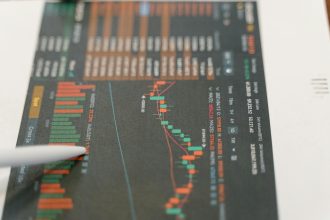global stock market trends
Global Markets Surge: What the Latest Index Movements Mean for You
The financial world is a dynamic beast, constantly shifting and evolving. In recent times, a significant buzz has surrounded the performance of major global stock market indices. From the venerable FTSE 100 to the bustling DAX and the influential Swiss Market Index, these benchmarks are not just numbers; they are barometers of economic health, investor sentiment, and future potential. Understanding what drives these movements and what they signify is crucial for anyone looking to navigate the financial landscape, whether you’re a seasoned investor or a curious newcomer.
Decoding the Latest Global Index Performance
Recent press releases highlight a period of notable activity across key international stock exchanges. We’ve seen a flurry of updates concerning indices like the FTSE 100 (United Kingdom), DAX (Germany), Swiss Market Index (Switzerland), CAC 40 (France), AEX (Netherlands), BEL 20 (Belgium), PSI 20 (Portugal), IBEX 35-Mini (Spain), OMX Swedish Index (Sweden), and even the VSTOXX Mini, which tracks volatility. These reports often point to a complex interplay of economic data, geopolitical events, and corporate earnings that collectively shape market sentiment.
The FTSE 100: A Look at the UK’s Blue-Chip Giants
The FTSE 100, representing the largest 100 companies by market capitalization listed on the London Stock Exchange, often reflects broader global economic trends due to the international nature of its constituent firms. Recent performance can be influenced by factors such as commodity prices, interest rate decisions by the Bank of England, and global trade dynamics.
The DAX: Germany’s Industrial Powerhouse
Germany’s DAX index is a key indicator of the health of Europe’s largest economy, heavily weighted towards industrial and automotive sectors. Its movements are closely watched for insights into manufacturing output, export performance, and the impact of European Central Bank policy.
Swiss Market Index (SMI): Stability and Innovation
The Swiss Market Index, known for its concentration of pharmaceutical, financial, and luxury goods companies, often offers a picture of stability and innovation. Its performance can be influenced by global demand for healthcare, the strength of the Swiss franc, and regulatory environments.
Why Global Stock Market Trends Matter to Everyone
It’s easy to dismiss stock market indices as the domain of finance professionals. However, their performance has ripple effects that touch nearly every aspect of our economy and, by extension, our lives. Understanding these trends can provide valuable insights into:
Investment Opportunities and Risks
For investors, index movements are direct signals. A rising market might suggest opportune times to invest, while a downturn could signal caution or a chance to buy assets at a lower valuation. Different indices represent different sectors and geographical regions, offering a diverse range of investment avenues.
Economic Health Indicators
Stock markets are often considered leading economic indicators. A sustained upward trend can signal growing corporate profits, increased consumer spending, and overall economic expansion. Conversely, a prolonged decline can foreshadow economic slowdowns or recessions.
Global Interconnectedness
The performance of one major index can influence others. For example, a significant downturn in the US market can often lead to a sell-off in European and Asian markets due to investor confidence being shaken globally. This highlights the intricate web of global finance.
Key Factors Influencing Current Index Performance
Several overarching themes are currently shaping the trajectory of global stock market indices. These include:
Inflation and Interest Rate Hikes
Central banks worldwide have been grappling with persistent inflation. Consequently, many have raised interest rates to curb price increases. Higher interest rates can make borrowing more expensive for companies, potentially slowing growth, and can also make bonds more attractive relative to stocks, leading to shifts in investment allocation.
Geopolitical Developments
Global events, from international conflicts to trade disputes, can inject significant uncertainty into financial markets. Such events can disrupt supply chains, impact commodity prices, and alter investor confidence, leading to volatility in index performance.
Corporate Earnings and Outlooks
The financial health and future prospects of individual companies are fundamental drivers of stock prices. Positive earnings reports and optimistic forward guidance can boost individual stocks and, by extension, the indices they belong to. Conversely, disappointing results can have the opposite effect.
Technological Advancements and Sectoral Shifts
Innovation, particularly in technology, continues to reshape industries. Companies at the forefront of AI, renewable energy, or biotechnology may see their valuations soar, influencing the performance of indices with significant exposure to these sectors. This can lead to a rotation of capital from traditional sectors to newer, high-growth areas.
Navigating the Volatility: Strategies for Investors
The inherent volatility of stock markets means that a thoughtful approach is essential. Here are some strategies to consider:
Diversification is Key
Don’t put all your eggs in one basket. Spreading investments across different asset classes, industries, and geographical regions can help mitigate risk. For instance, if the CAC 40 is struggling, a well-diversified portfolio might be cushioned by gains in the OMX Swedish Index.
Long-Term Perspective
Market timing is notoriously difficult. Adopting a long-term investment horizon allows investors to ride out short-term fluctuations and benefit from the potential for growth over years or decades. History shows that despite periods of significant downturns, markets have generally trended upwards over the long run.
Stay Informed, But Avoid Knee-Jerk Reactions
Keeping abreast of economic news and market trends is important, but it’s equally crucial to avoid making impulsive decisions based on daily headlines. Emotional trading can often lead to costly mistakes. Instead, focus on your financial goals and risk tolerance.
The Future Outlook for Global Indices
Predicting the future of any stock market index with certainty is impossible. However, by monitoring the key factors discussed – inflation, geopolitical stability, corporate performance, and technological disruption – one can form a more informed outlook. The resilience of global economies and the adaptability of businesses will be paramount in shaping the performance of indices like the FTSE 100, DAX, and SMI in the coming months and years.
The continuous updates from various indices, from the PSI 20 in Portugal to the VSTOXX Mini reflecting market sentiment, paint a picture of an evolving financial landscape. Understanding these movements isn’t just about tracking numbers; it’s about grasping the pulse of the global economy and preparing for what’s next.
Conclusion: Your Guide to Understanding Market Movements
The intricate dance of global stock market indices, from the FTSE 100 to the OMX Swedish Index, provides a vital window into the health and direction of the world economy. By understanding the factors that influence these benchmarks – be it inflation, geopolitical events, or technological innovation – investors and individuals alike can make more informed decisions. Remember that diversification, a long-term perspective, and staying informed without reacting impulsively are crucial strategies for navigating the ever-changing financial markets.
Ready to make sense of the market? Explore our in-depth guides and resources to build a smarter investment strategy today!
© 2025 thebossmind.com
Featured image provided by Pexels — photo by Alesia Kozik










